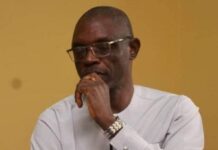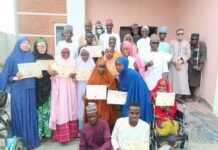Saints, SANs and Sinners
By Dare Babarinsa
The honour of becoming a Senior Advocate of Nigeria (SAN) has not lost its allure despite its age on the Nigerian scene. The SAN is an affirmation that Nigeria is a great country on the African continent and our strength are the people of Nigeria, the men and women who give substance and meaning to our ‘Nigerianess’.
The list this year is a proof that brilliance and industry can be transmitted through the DNA or acquired through close contact in the other room. What is clear is that you cannot be a SAN if you are not solid intellectually and know your law through and through.
Lawyers are very sensitive about seniority. In those days, Chief Rotimi Williams, the incomparable legend of the Nigerian Bar, would occupy a whole front bench in the court room while lesser mortals, including the venerable Chief Gani Fawehinmi, would dare not contest the space with him.
Today, there are many Senior Advocate of Nigeria, including my dear aburo, Kayode Ajulo, who at 49 is one of the youngest in this year’s team. Yet, the Inner Bar, as it is called, remains an exclusive sanctum for the chosen few. Every SAN has to prove that he or she is worth it. It is almost impossible to see a SAN and have any doubt about his or her competence.
The legal profession has done very well in protecting the value and quality of the award. During the colonial era and after, until Nigeria became a Republic in 1963, only few lawyers were admitted into the ranks of Queen’s Counsel. Among them of course was Chief Williams, the first Attorney-General of the defunct Western Region.
In 1975, the SAN honour was instituted with Chief Williams and Dr Nabo Graham-Douglas, former Attorney General of the Federation, as the first recipients.
They were joined later by a select few that included Chief Obafemi Awolowo, and Chief R.A. Fani-Kayode, former Deputy Premier of the defunct Western Region.
Over the years, the likes of Chief Richard Akinjide, Mr Kehinde Sofola, Chief G.O.K Ajayi, Chief Olisa Chukura, Chief Mudiaga Odje, Prince Bolasodun Ajibola, Alhaji A.G.F. Abdul-Rasaq, Mr I.A Bankole Oki, Chief Bola Ige and Professor Ben Nwabueze joined the rank.
In 1981, Mrs Folake Solanke became the first woman to wear the precious silk of the Senior Advocate, opening the door for the likes of Funke Aboyade, Otunba C.O Ajayi-Okunnua, Agada Elachi, Folashade Alli (daughter of Aare Babalola) and Funmi Falana, wife of Femi, also a SAN.
This year’s list has demonstrated enduring adherence to quality by the Legal Practitioners’ Privileges Committee headed by His Lordship, Justice Olukayode Ariwoola, the Chief Justice of the Federation.
Ajulo is typical of those who made the list. He was born in 1974, and had his law degree from University of Jos in 1999. He has been in private legal practice since he left the Nigerian Law School in 2001. Like many of his colleagues, he is also a politician and human rights advocate. He was the Labour Party senatorial candidate for Abuja during the 2011 general election and served as the General Secretary of the party from 2014 to 2015. He is the Registrar of the Abuja Diocese of the Church of Nigeria, (Anglican Communion). Now he is a member of the Aristocracy of the Nigerian Bar.
This is one honour where Federal Character does not count much. That is why it is possible to have Femi and Funmi Falana both wear the silk. The patriarch of Funmi’s family in Akure was Justice Akinola Aguda, the former Chief Justice of Botswana, who later became the last Chief Justice of the old Western State as well as the first Chief Justice of Ondo State. He was the pioneer Director-General of the Nigerian Institute of Advanced Legal Studies, at the University of Lagos where I first met him.
Read Also:
The Falanas are not alone in getting double portion. Chief Gboyega Awomolo is married to Mrs Victoria Oluwafunmilayo Awomolo and both of them are SANs. There are also families where both fathers and children are in the Inner Bar. The late Professor Gabriel Olawoyin and his son are both Senior Advocates. Chief Wole Olanipekun and his son Bode are both Senior Advocates.
Since this requires intellectual rigour, it is not surprising that Ekiti State is well represented. Among the SANs from Ekiti are: Tunde Adeoye, who got his laurel this year and the giants like Chief Olanipekun, Aare Babalola, Falana, Gbenga Oyebode, Olawale Fapohunda, Dele Adesina, Dayo Akinlaja, Olu Daramola and Gboyega Oyewole. It would not be surprising if in future, Ekiti comes to dominate the legal profession as it once did the teaching profession in the old Western Region.
There is no doubt that the SAN laurel helps to differentiate the boys from the men. In most instances, the Attorney-General of the Federation is often chosen from the ranks of SANs. I could think of the likes of Chief Akinjide, Chike Ofodile, Bola Ajibola, Michael Agbamuche, Olu Onagoruwa, Kanu Agabi, Bola Ige, Akin Olujimi, Bayo Ojo, Michael Aondoakaa, Adetokunbo Kayode, Mohammed Bello-Adoke, Abubakar Malami and the current AG, Lateef Fagbemi.
The Bar has done well by steering the honour from politics. Sometime during the military era, it was becoming apparent that many of the leading human rights lawyers would not be considered for the honour. People like Olisa Agbakoba, Chief Gani Fawehinmi and Femi Falana were conspicuously left out of the honour list for many years.
For their roaring opposition to military rule, people like Fawehinmi were regarded as sinners who should not be touched even with a long pole. One day, Fawehinmi was invited to deliver a public lecture at the Obafemi Awolowo University, OAU, Ile-Ife. The students were so elated that they gave the fiery lawyer the honour of becoming the Senior Advocate of the Masses (SAM).
Fawehinmi cherished the honour of being our SAM. Though in the end, he was given the SAN title, he remained one of us till the very end, hoisting the flag in the hottest part of the battlefield for human rights. I am not surprised that many of his former junior colleagues in the human rights struggle, including graduates from his chambers, are today holding top positions. I am talking of people like Tayo Oyetibo, His Lordship, Justice Abiodun Akinyemi and Festus Keyamo.
Of course, no chamber has produced more SANs than that of Aare Afe Babalola, who from his headquarters in Ibadan, has spread his tentacles across the country. From his chamber alone he has produced more SANs and judges than any other.
Other SANs have arisen from unexpected places and have become giants of the bar in their own right. We have people like former Vice-President, Yemi Osinbajo, Wale Babalakin, late Deji Sasegbon, Adebayo Adenipekun, Olumide Olanipekun, Yusuf Ali, Rotimi Jacobs, Akin Onigbinde, Mike Igbokwe and Henry Oghogho Ogbodu, my old roommate at the University of Lagos.
In the past, it used to be journalism and law. Today, law has become the preferred profession of politicians. Rotimi Akeredolu (SAN), the Governor of Ondo State, was President of the Nigerian Bar Association. Lawyers like Babatunde Fashola (SAN), Babatunde Ogala (SAN), Adeniyi Adegbonmire (SAN) and many others are holding important positions in the government and the legislature.
It is important now that we have many top priests in the temple of justice, the citizens would have easier access to social justice. Unlike the military era, the dichotomy between saints and sinners is no longer clear, but we expect a clearer view of justice.
As of now, a tragic drama is going on in Port Harcourt, Rivers State, where social justice is confronting a mob trying to remove her cloth of sanctity. We hope the army of SANs would soon be deployed to that theatre to serve the interest of the people and the Rule of Law.













